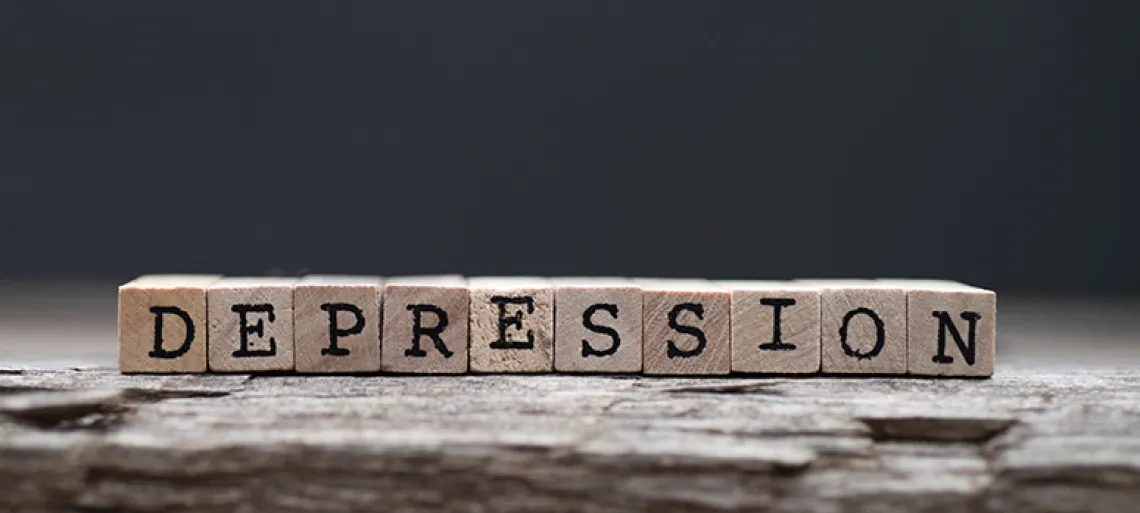What You Need to Know About Depression

Depression is a very real and treatable condition. If you or someone you love is showing signs of depression, you may wonder what steps to take. You may want to begin by learning more about depression, including common symptoms and treatment options as well as myths, misunderstandings and stigma.
Depression is a Real Illness
Often, depression is confused or closely linked to feelings of sadness. However, depression is a condition that involves many symptoms beyond sadness. Some people with depression may not feel sadness at all.
Common signs and symptoms of depression include:
- Persistent sad, anxious, or “empty” mood
- Feelings of hopelessness, pessimism
- Feelings of guilt, worthlessness, helplessness
- Loss of interest or pleasure in hobbies and activities Decreased energy, fatigue, being “slowed down”
- Difficulty concentrating, remembering, making decisions Difficulty sleeping, early-morning awakening, or oversleeping Appetite and/or weight changes
- Thoughts of death or suicide, suicide attempts Restlessness, irritability
- Persistent physical symptoms
When a person is suffering from depression, it can interfere with a person’s daily life and normal functioning.
Depression is an illness, not a sign of a person’s weakness or a character flaw. Most people who experience depression require treatment to cope with symptoms.
Depression Affects People in Different Ways
Not everyone who is depressed experiences every symptom. Some people experience only a few symptoms while other people experience many.
Below are generalizations of how different groups commonly experience depression.
Women
Depression is more common among women than among men. Biological, lifecycle, hormonal, and psychosocial factors that are unique to women may be linked to their higher depression rate.
For example, women are especially vulnerable to developing postpartum depression after giving birth, when hormonal and physical changes and the new responsibility of caring for a newborn can be overwhelming.
Men
While women with depression are more likely to have feelings of sadness, worthlessness, and excessive guilt, men are more likely to be very tired, irritable, lose interest in once-pleasurable activities, and have difficulty sleeping.
Men may turn to alcohol or drugs when they are depressed. They also may become frustrated, discouraged, irritable, angry, and sometimes abusive.
Children / Teens
Children and teens with depression may sulk, get into trouble at school, be negative and irritable, and feel misunderstood. If parents or guardians are unsure if their child is depressed, consider how long the symptoms have been present, how severe they are and how different the teen is acting from his or her usual self.
Children and teenagers usually rely on parents, teachers, or other caregivers to recognize their suffering and get them the treatment they need.
The Elderly
Depression in older adults may be difficult to recognize because they may show different, less obvious symptoms.
Older people who are depressed can appear to feel tired, have trouble sleeping, or seem grumpy and irritable.
Keep in mind that symptoms of depression can vary regardless of race, age or gender. The severity and frequency of symptoms, and how long they last, can vary depending on the individual and his or her particular illness. Symptoms may also vary depending on the stage of the illness.
Depression is Treatable
Even the most severe cases of depression have treatment options available to help cope with symptoms.
Treatment is most effective the earlier it begins. Common treatment options for adults include antidepressants, talk therapy (psychotherapy) or a combination of the two.
If you think you might have depression, start by making an appointment to see a doctor or health care provider.
To prepare for your appointment, make a list of:
- Any symptoms you have experienced, including any that may seem unrelated to the reason for your appointment
- When did your symptoms start?
- How severe are your symptoms?
- Have the symptoms occurred before?
- If the symptoms have occurred before, how were they treated?
- Key personal information, including any major stresses or recent life changes
- All medications, vitamins, or other supplements that you’re taking, including how much and how often
- Questions to ask your health provider
If you do not have a primary doctor or are not at ease with the one you currently see, now may be the time to find a new doctor. Remember that depression affects people differently. It may take some trial and error to find the treatment option that works best for you and your symptoms.
Resources
National Institute of Mental Health
National Institutes of Health
Mental Health America
©2023 ComPsych ® Corporation. All rights reserved. This information is for educational purposes only. It is always important to consult with the appropriate professional on financial, medical, legal, behavioral or other issues. As you read this information, it is your responsibility to make sure that the facts and ideas apply to your situation.

